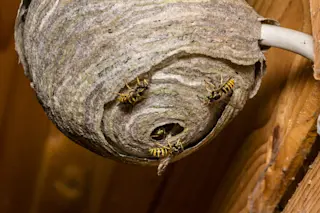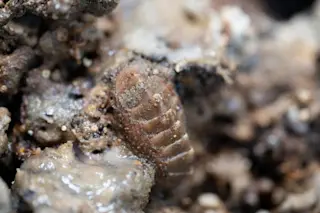Much of the food that fills your dinner plate can only be produced with the help of a highly managed insect species: the western honey bee. Many farmers actually rent commercial colonies to unleash on their fields when the crops are in bloom. Such pollination services rake in $14 billion a year in the United States. But honey bee populations have plummeted in the last half decade as worker bees have mysteriously flown off and never returned to the hives---a phenomenon now called Colony Collapse Disorder. Scientists are stumped. Some blame malnutrition. Others point fingers at pathogens. Perhaps it's pesticides. New research has identified a particular chemical in pollen that may finally provide an answer. Western honey bees have a taste for a range of nectars, so they are exposed to many different chemicals in and on the plants they pollinate. In addition, commercial hives are often treated with insecticides ...
Honey May Be Bees' Best Medicine for Colony Collapse Disorder
Discover how the western honey bee's health is linked to p-coumaric acid and its role in combating Colony Collapse Disorder.
More on Discover
Stay Curious
SubscribeTo The Magazine
Save up to 40% off the cover price when you subscribe to Discover magazine.
Subscribe












